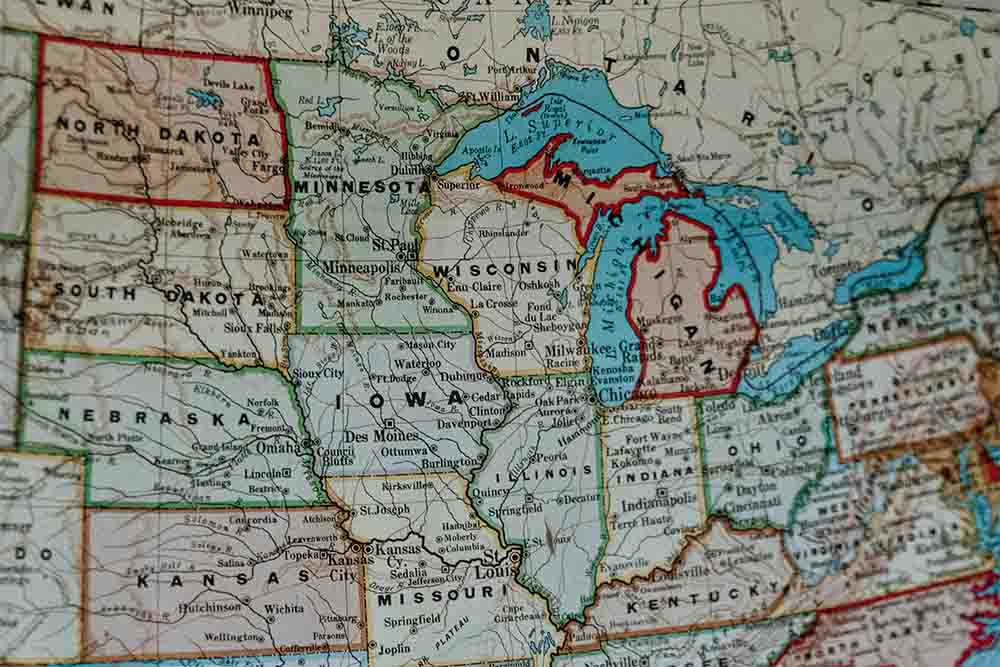Trade is essential for Manitoba’s economy. International exports and imports represented 46.4 per cent of GDP for Manitoba in 2018. With a significant goods-related industry estimated at 26.9 per cent of GDP in 2019, Manitoba needs to have strong trading partners to develop its economy. In 2019, 30.6 per cent of its exports were resource-based goods, which was a decrease from 35.6 per cent in 2018. On the other hand, manufactured goods exported represented 69.4 per cent of Manitoba’s GDP, an increase from 64.4 per cent in 2018.
As researcher Gregory M. Spencer states: “The value of Manitoba’s exports has roughly doubled over the past two decades, (while) the value of imports has nearly tripled.” But more importantly, the leading destination for Manitoba’s exports is the United States. In 2019, the U.S. represented 75 per cent of Manitoba’s exports. In 1999, that share was more than 80 per cent, decreasing to 60 per cent in 2011 before rising again. This evolution is linked to the development of trade with Asia and countries such as China. Trade with the U.S. has increased due to international politics and growing tensions between North America and China. The Conference Board of Canada reported that: “China’s ban on Canadian canola exports led to a significant decline in Manitoba’s exports to China in 2019.”
As Manitoba’s primary trading partner, the U.S. is an asset for the province, which can rely on its geographic neighbour for trade and thus enjoy lower logistical costs. But at the same time, this situation can be precarious due to U.S. policy, especially with the rise of protectionism under the Trump and Biden presidencies.
The World Trade Centre Winnipeg has released a report highlighting the clusters in Manitoba’s economy, especially in industry. The main sectors in terms of trade volume are agriculture and food, transportation and logistics, mining and metals, aerospace and agricultural equipment.
The fastest growing sectors with the greatest promise for the future of trade are digital and precision agriculture, proteins, next-generation buses, transportation and logistics and aerospace. 
Agriculture and transportation and logistics lead the field in Manitoba trade. The U.S. accounted for $2.7 billion worth of Manitoba’s agri-food exports in 2018. In some areas, the province even has a competitive advantage over the U.S. The Conference Board of Canada states: “Canadian factories that make sweet goods have access to lower-cost sugar relative to their US counterparts. This is because US protectionist sugar trade policies inflate sugar prices. Despite US measures to protect its sugar industry from international competition, Canada’s sugar confectionery products have had access (to some extent) to the US market through tariff-rate quotas (TRQs).”
In the last 20 years, Manitoba has signed agreements with a number of U.S. states to improve relations and trade potential: Minnesota (2001), Texas (2002), California (2006), Wisconsin (2009), Illinois (2011), Indiana, (2018), and North Dakota (2018). Manitoba also signed a joint agreement in 2002 with Iowa, Minnesota, North Dakota, Saskatchewan, South Dakota and Nebraska.
Most of these agreements offer the same vision: “(To) facilitate cooperation in agriculture research and development, trade and investment, and exchanges between the Participants, in compliance with the overall economic development strategies and trade development plans of the Participants and with a long-term strategy of mutual benefit and shared growth.”
Manitoba should use its advantages to impel trade in these states. Protectionism is still a threat, but Canada shares the same values as the U.S.
Alexandre Massaux is a research associate with the Frontier Centre for Public Policy.
Photo by Hans Isaacson on Unsplash.



